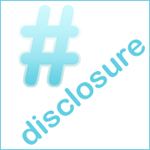 So the Federal Trade Commission has announced the new rules for disclosing the sponsor-endorser relationships. This includes all affiliates that tweet, post, or publish any other online content that has affiliate links embedded in it (or content on which they earn money).
So the Federal Trade Commission has announced the new rules for disclosing the sponsor-endorser relationships. This includes all affiliates that tweet, post, or publish any other online content that has affiliate links embedded in it (or content on which they earn money).
But how do you squeeze an appropriate disclosure into the 140 characters of a tweet? I’ve seen some affiliates using an #AffiliateLink hashtag, but I am not positive it provides a clear enough disclosure (especially in light of how differently “affiliate” may be defined by different readers, friends and followers).
Some of the following hashtags may work:
- #SponsoredTweet
- #PaidLink
- #ThisIsMySponsor
- #iAmPaidToTweetThis
- #YouPurchaseIGetACut 🙂
Of course, it would help if Twitter came up with some sort of a universal hashtag that could be used to mark affiliate tweets (e.g.: #TIMS for #ThisIsMySponsor).
Additionally, PCWorld.com has described another possible scenario involving Twitter:
Say, for example, you work for Microsoft and become a fan of the company on Facebook or tweet about how much you love Windows 7. Now, what if you have not made it clear on your Facebook and Twitter profiles that you work for Microsoft? Some of your Facebook friends or Twitter followers might see your posts, and — knowing that you’re an expert in technology, but not necessarily that you work for Microsoft — take your Windows 7 endorsement at face value. You still might love Windows 7, but you haven’t made it clear that you’re receiving financial compensation as a Microsoft employee. Under the new FTC guidelines, you may have just crossed the line. True, it’s unlikely the FTC will be interested in you, but if you have a large amount of Twitter followers or Facebook friends, it might be a good idea to disclose your corporate affiliations.
So here’s another set of hashtags to choose from:
- #iAmCompanynameEmployee
- #iWorkForCompanynamehere
- #iWorkForThem
Will the above ones be enough to safeguard you from the legal action that FTC may take against you for improper disclosure of the relationship with the advertiser? I cannot guarantee this. So do not take any of the above as a legal advice, but talk to your lawyer. Most online marketers agree that the key here is in being sincere, straightforward, and transparent. Honesty always produces trust.
I’ve seen #ad used – if it’s necessary to use one, I think that would be ideal, since it communicates it effectively and uses a minimal amount of characters.
It does, but I wonder if it will be sufficient in the FTC’s eyes.
Is this something that can be handled by adding disclosure language to an existing policy page of a website or making use of a service like DisclosurePolicy.org to create a page of disclosure? If so, why not post a link in your Twitter profile to a disclosure page?
I appreciate the PCWorld.com suggestion that it is good policy to state you’ve received a reviewed item for free, but a separate disclosure page would be a great addition and possibly cover other marketing efforts.
Joel, thanks for chiming in. I love that Disclosure Policy Generator by IZEA. Thanks for the link.
Will posting a link to a disclosure page in the Twitter profile suffice? I don’t know. It may be that the full disclosure must be linked to from the profile, but each tweet should still have some kind of indication that it is a sponsored one. I think they will deem each tweet a separate blog (or microblog) post.
I just read about the new FTC guidelines yesterday. Interesting to see how it will be addressed on Twitter. Geno, in terms of its impact on blogs, do you think the disclosure has to on each post or can it just be embedded on one page of the site? I also used the disclosure policy generator, very helpful!
I do not believe that at present time there is a clear understanding of how exactly this is to be handled on Twitter. Today’s Business Week article references TwittAd’s, Ad.ly’s and IZEA’s approaches.
As far as blogs go, I believe one main disclosure per affiliate blog/website should be enough. Scott Jangro’s, Tim Carter’s and Sarah Mae’s examples can be helpful in crafting your own.
Great examples. I particularly like Tim Carter’s and will prob model off that. Thanks for the info!
Any time, Bryan. Glad to be of help.
Ric Townsend has just tweeted about the Twittad’s disclosure policy. It does look like a good example of an overall campaign’s/company’s disclosure policy. Will it suffice for the FTC though (unless each tweet also has a link to the policy)? FTC is advising to either have it “in proximity to blog”/tweet, or to “incorporate it into the blog discussion itself” [source]. Would going through the Spon.in url-shortening service meet one of these requirements (because spon.in does have the disclosure on their homepage)? It depends on how you look at it. Since the end user is never going to be clicking through to the homepage of Spon.in, but to the advertiser’s landing page “from Twittad.com” at the end of each such tweet may not cut it (unless it starts with a “www” and links to Twittad’s site).